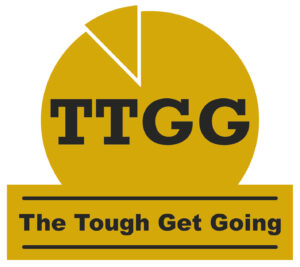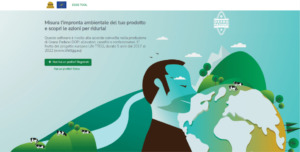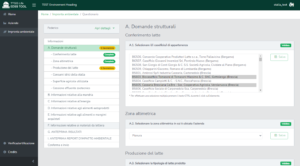The Tough Get Going: reduction of the Ambiental impact of the production processes
The LIFE TTGG – The Tough Get Going (meaning by “tough” the cheeses covered by the project) project was born from the synergy between universities, start-ups, manufacturing companies, and Italian and French training and research institutions, with the aim of improving the efficiency of cheese production processes in Europe, reducing environmental impact, and thus achieving more sustainable production and consumption.
| Project type: LIFE 16 ENV/IT/000225 Budget: 2’148’987 Euros (1’270’869 Euros founded by EU) Duration: 2017 –2022 Number and Partner involved: 7 project partners: Politecnico of Milan (POLIMI) – Coordinating beneficiary, Università Cattolica del Sacro Cuore (UCSC), ENERSEM (Start-Up Innovativa), Grana Padano (GP-DOP), Centre National Interprofessionnel de l’Economie Laitière (CNIEL), The Organization for an International Geographical Indications Network (oriGIn), Fondazione Qualivita (FQ)) Role: Subcontractor Project site: www.lifettgg.eu |
 |
This multi-partner collaboration intended:
- Implement Recommendation 2013/179/EU and related rules for dairy products on the assessment of the environmental performance of two PDO cheeses throughout their life cycle.
- To develop a dataset (LCI – Life Cycle Inventory) used by companies to simplify the calculation and reduce time and costs in assessing the life cycle of dairy products, in accordance with the Product Environmental Footprint (PEF).
- To develop environmental decision support software for PDO cheeses (hard and semi-hard) from cow’s milk, aimed at assessing the environmental footprint and its reduction.
- Apply the best available techniques throughout the supply chain (using a cradle-to-grave approach) by implementing dedicated software in order to identify, describe and evaluate in real cases the impact of proposed technical solutions
THE ROLE OF TERRARIA
TerrAria was in charge of the IT development of the Environmental Decision Support System (EDSS), an online calculator that enables people to measure a product’s environmental footprint and find out how to take the most effective measures. TerrAria focused on the IT engine of the software: data entry and reprocessing, front-end and back-end connection, and operational operation.


